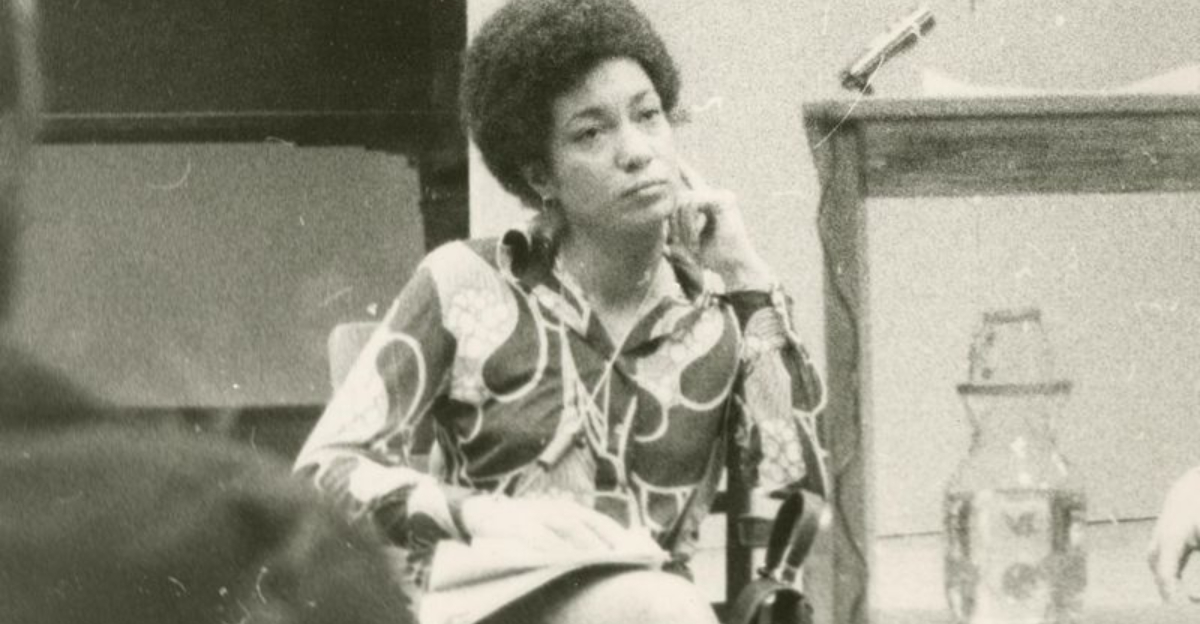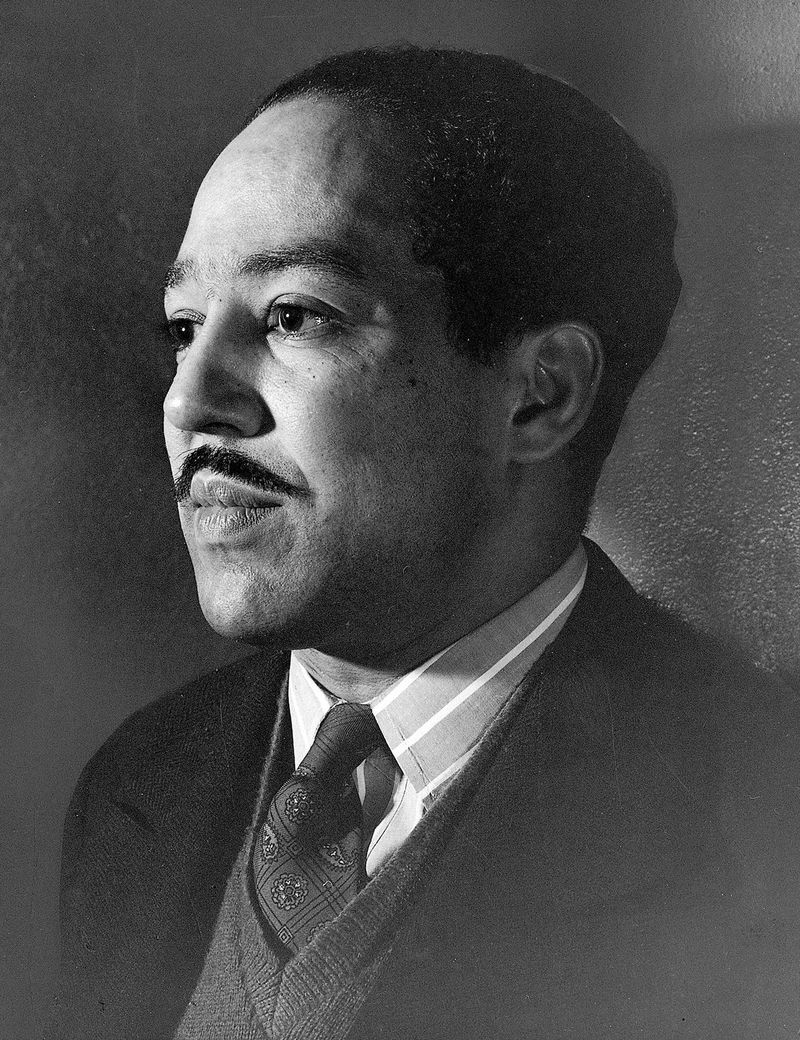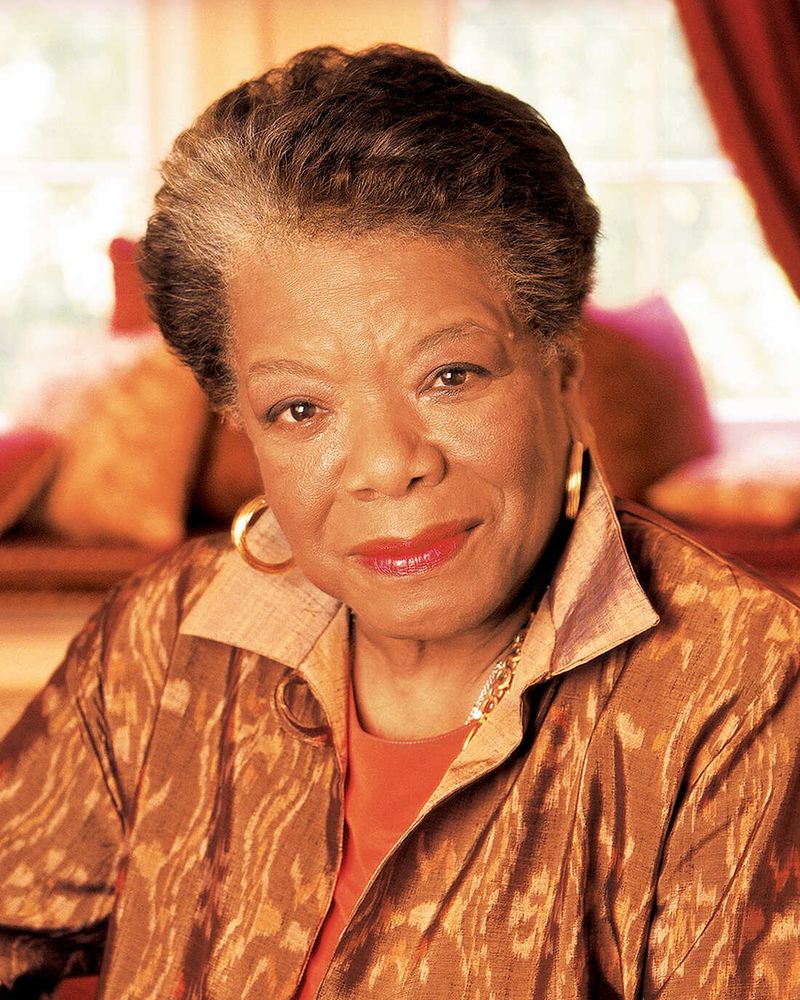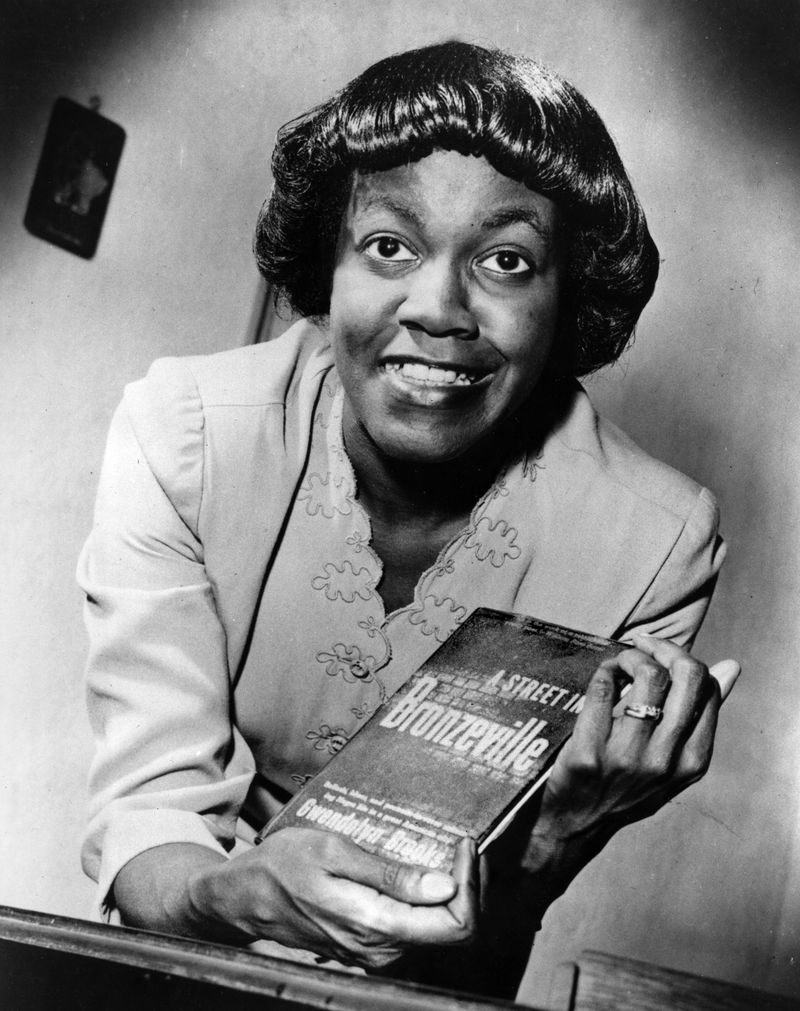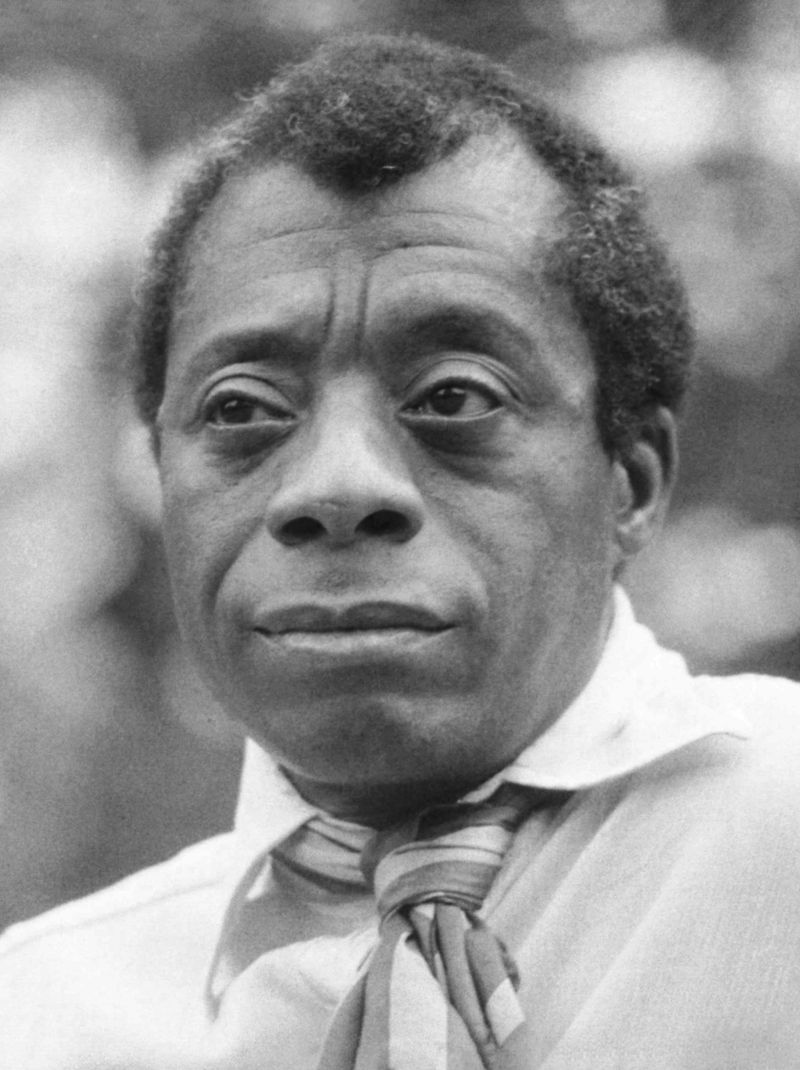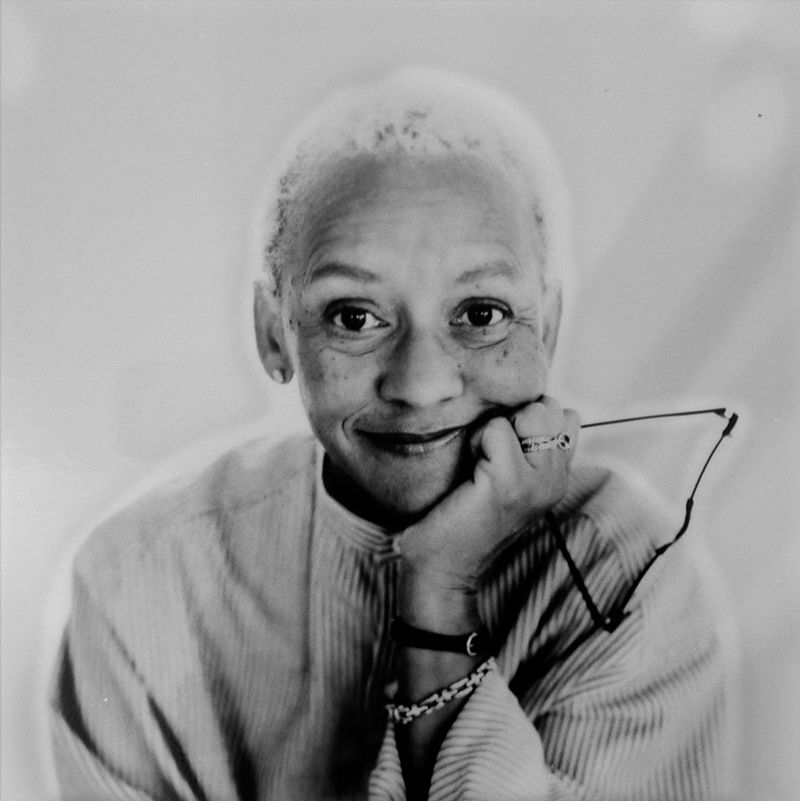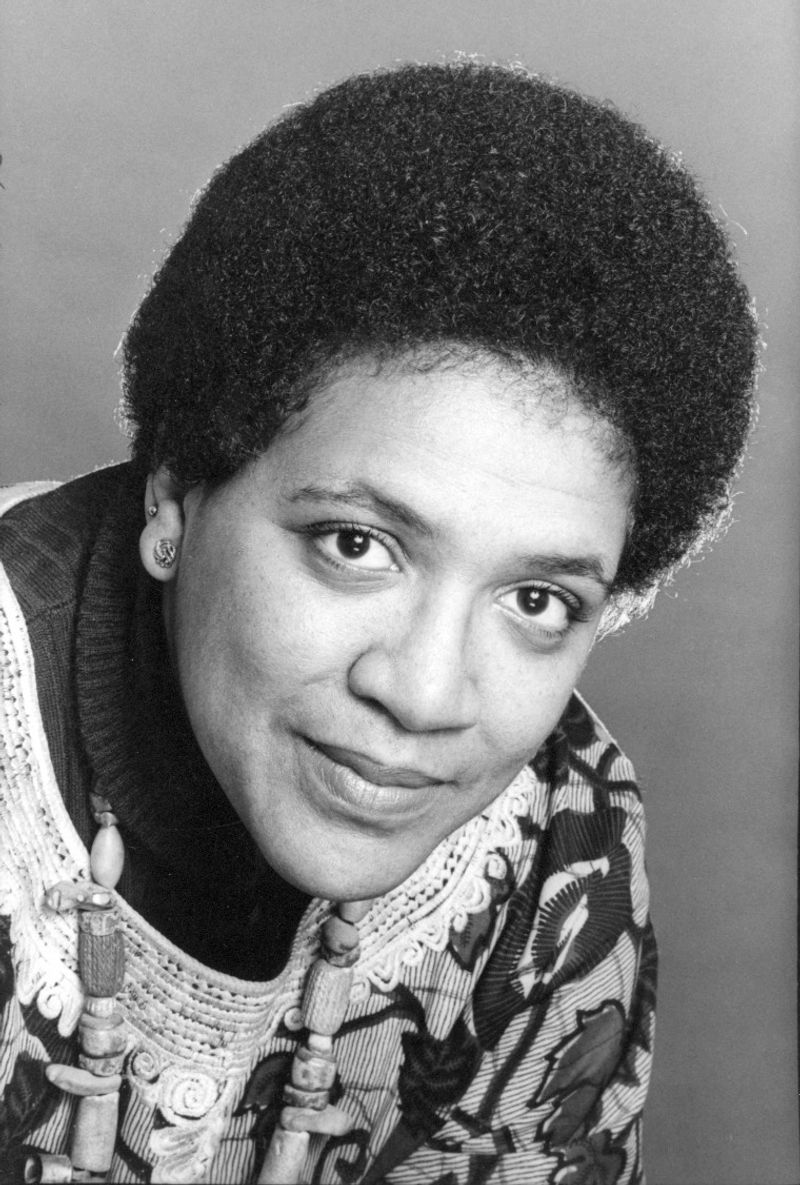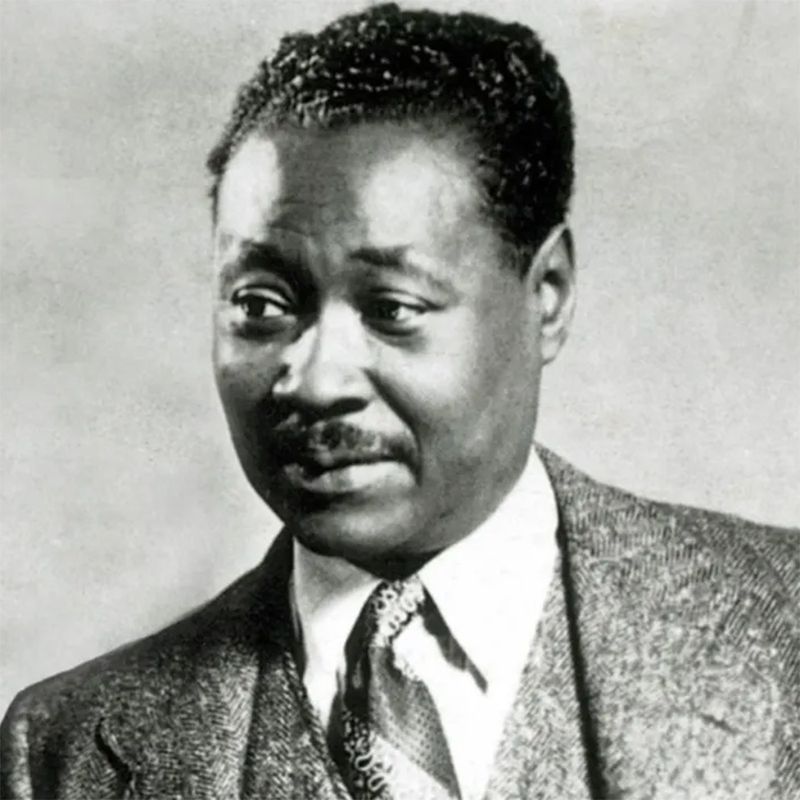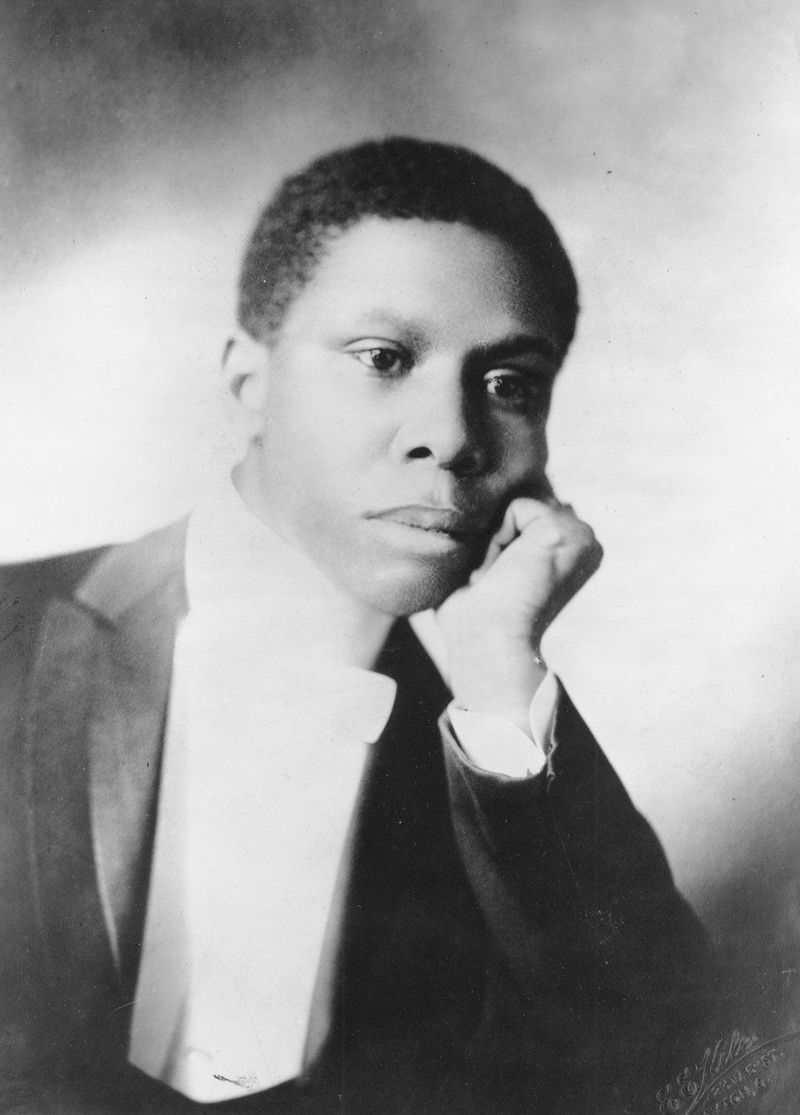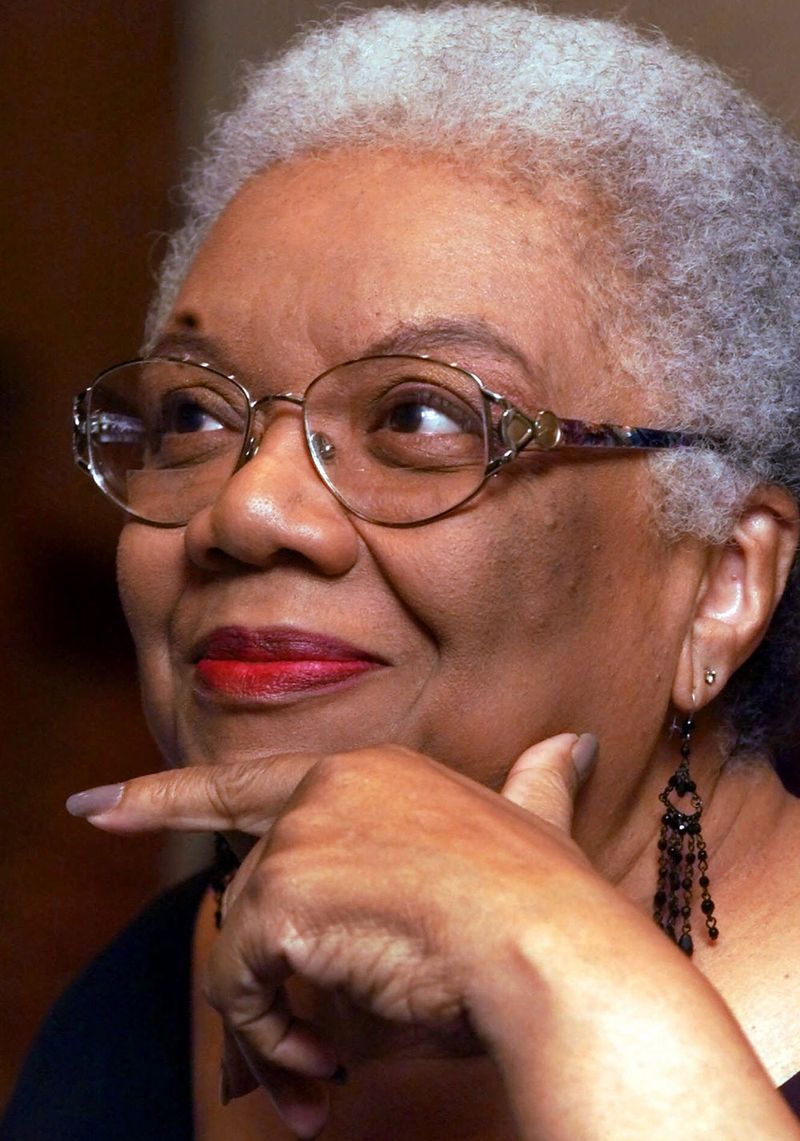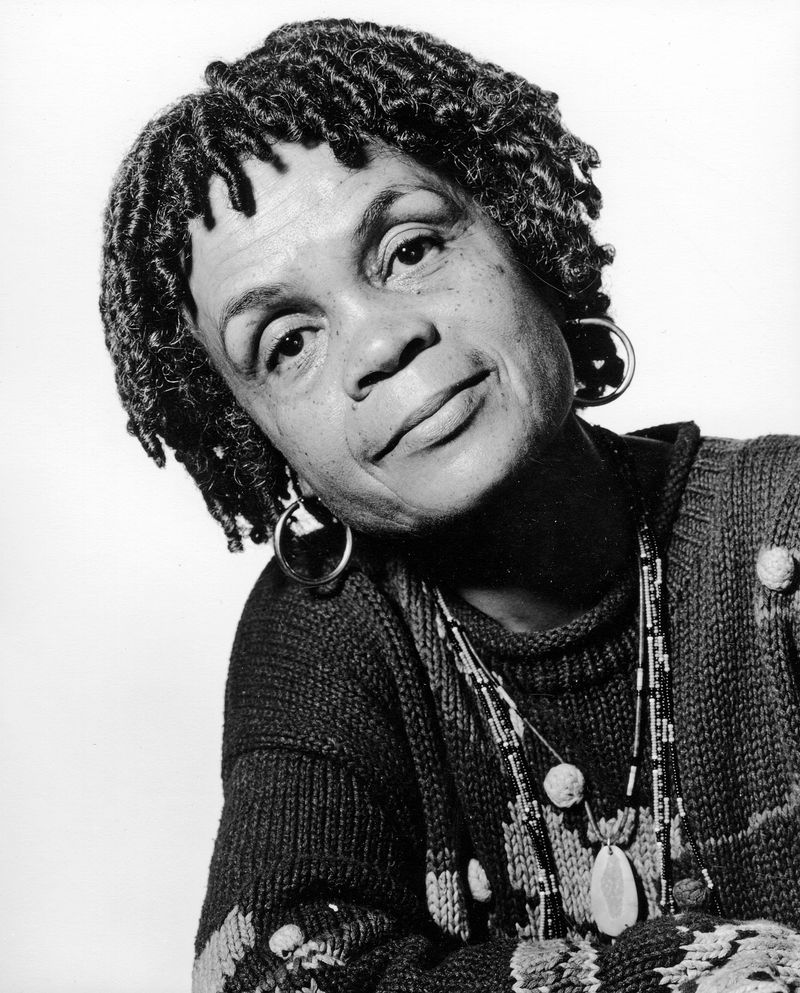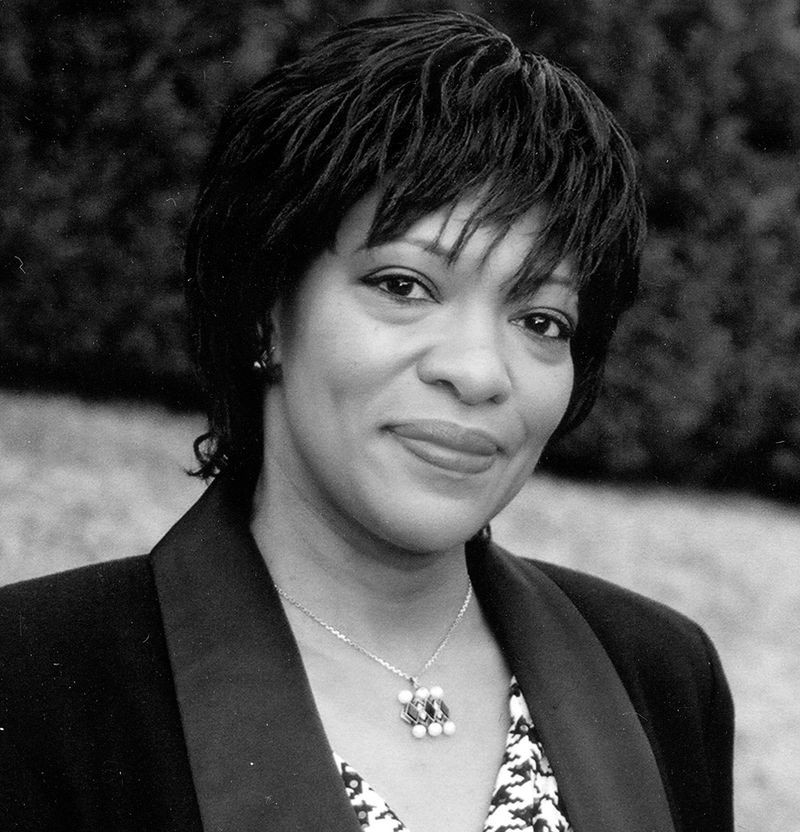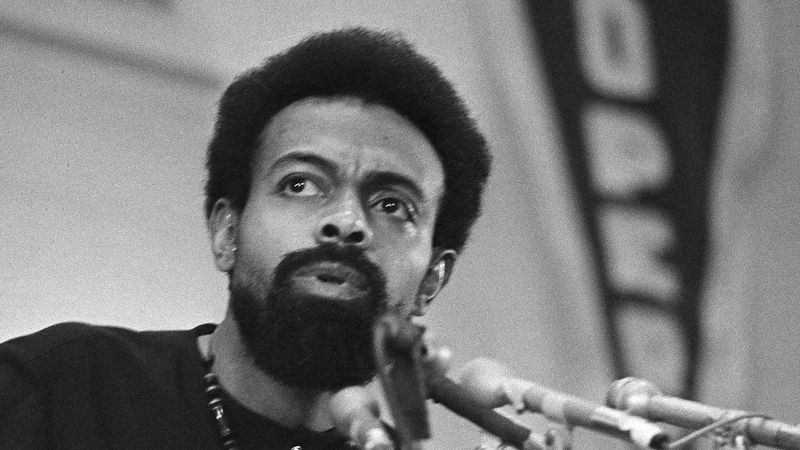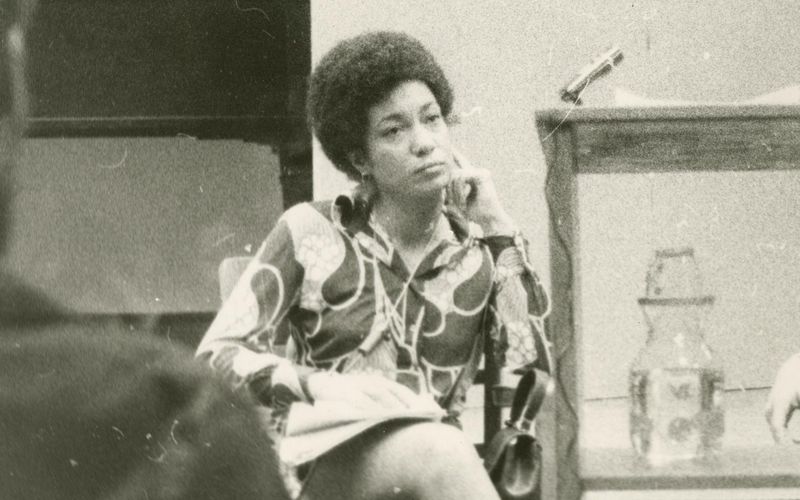Explore the profound impact of 15 Black poets who not only transformed literature but also inspired generations through their powerful words, timeless themes, and unyielding advocacy for justice and identity.
1. Langston Hughes
Langston Hughes, born in 1902, emerged as a leading voice of the Harlem Renaissance. His poetry captures the struggles and joys of Black life in America. In works like The Weary Blues, Hughes poetically conveys the rhythms of jazz, embodying the vibrant culture of Harlem.
Let America Be America Again echoes his hope for an America true to its promises. Throughout his career, Hughes used his platform to advocate for equality and celebrate Black identity.
His legacy endures, influencing countless poets and artists. Hughes’ work remains a testament to the power and resilience of the Black community.
2. Maya Angelou
Maya Angelou, born in 1928, became an iconic figure in literature and activism. Best known for her autobiography, I Know Why the Caged Bird Sings, she also penned impactful poems like Still I Rise.
These works resonate with themes of resilience and empowerment. Angelou’s Phenomenal Woman celebrates the strength and beauty of women. Her vibrant voice continues to inspire generations, blending personal history with universal truths.
As a poet and civil rights activist, Angelou’s legacy is immortalized in her powerful words, evoking a sense of courage and hope in readers worldwide. Her influence transcends the literary world.
3. Gwendolyn Brooks
Gwendolyn Brooks, born in 1917, was the first Black person to win a Pulitzer Prize for poetry. Her work illuminates the Black experience in America with clarity. In We Real Cool, Brooks encapsulates the fleeting nature of youth and rebellion.
The Bean Eaters offers a poignant look at everyday struggles and endurance. Brooks’ poetry combines lyrical elegance with profound social commentary, creating a tapestry of Black life.
Her achievements paved the way for future generations of poets. Her voice remains vital, resonating with readers through its authenticity and depth, making her an enduring figure in American poetry.
4. James Baldwin
James Baldwin, born in 1924, was a literary giant known for his novels and essays. His poetry, though less celebrated, is equally compelling. In Staggerlee Wonders, Baldwin explores themes of race, sexuality, and justice.
His words are sharp, filled with emotion and insight, capturing the complexities of identity. Baldwin’s work challenged societal norms, encouraging introspection and dialogue.
His influence extends beyond literature, impacting movements for social change. Baldwin’s legacy is a beacon for those seeking truth and understanding in a divided world. His courage in addressing difficult topics continues to inspire new generations of thinkers and writers.
5. Nikki Giovanni
Nikki Giovanni, born in 1943, is a powerful voice of the Civil Rights Movement. Her poetry blends personal, political, and cultural themes with vivid imagery. In Ego Tripping, Giovanni celebrates Black identity and pride with an exuberant voice.
Cotton Candy on a Rainy Day delves into personal introspection and resilience. Giovanni’s work is both reflective and empowering, connecting deeply with readers. Her words continue to inspire, urging individuals to embrace their identity and strive for change.
As a prominent figure in literature, Giovanni’s influence is profound, her poetry a testament to the enduring strength of the human spirit.
6. Audre Lorde
Audre Lorde, born in 1934, was a self-described “Black, lesbian, mother, warrior, poet.” Her work challenges oppressive systems and celebrates Black identity. In Coal, Lorde explores themes of transformation and strength.
A Litany for Survival resonates with those facing marginalization, offering solace and empowerment. Lorde’s poetry is a call to action, urging readers to confront injustice. Her unapologetic voice inspires resilience and courage.
Through her work, Lorde crafted a legacy of activism and artistry, her words remaining vital in the fight for equality. Her poetry is a powerful reminder of the importance of self-expression and authenticity.
7. Claude McKay
Claude McKay, born in 1889, was a key figure in the Harlem Renaissance. His poetry, including If We Must Die, is a powerful call for resistance and dignity. McKay’s words resonate with defiance and hope, capturing the spirit of a community striving for justice.
His work addresses issues of oppression and identity, offering a voice to the voiceless. McKay’s influence extends beyond literature, inspiring movements for social change. His poetry remains relevant, echoing the struggles and triumphs of the past.
Through his words, McKay invites readers to reflect on history and envision a future of equality and freedom.
8. Paul Laurence Dunbar
Paul Laurence Dunbar, born in 1872, was among the first Black poets to gain national recognition. His work, including We Wear the Mask, blends dialect with traditional verse, offering a nuanced portrayal of the Black experience.
Dunbar’s poetry explores themes of identity and resilience, revealing the complexities of life in America. His lyrical style and keen insight captivated audiences, paving the way for future generations of poets.
Dunbar’s legacy endures, his words echoing the struggles and triumphs of the past. Through his work, he invites readers to reflect on the enduring quest for equality and understanding.
9. Lucille Clifton
Lucille Clifton, born in 1936, was known for her concise yet powerful poetry. Her works, such as won’t you celebrate with me, explore themes of Black womanhood and resilience.
Clifton’s words resonate with strength and clarity, offering a profound reflection on history and identity. Her poetry is both personal and universal, speaking to the shared human experience.
Clifton’s legacy is one of empowerment, her voice a beacon of hope and inspiration. Through her work, she encourages readers to embrace their uniqueness and celebrate their journey. Clifton’s contributions to literature are timeless, her influence enduring.
10. Robert Hayden
Robert Hayden, born in 1913, was the first Black U.S. Poet Laureate. His poetry delves into African American history and personal memory. In Those Winter Sundays, Hayden reflects on familial love and sacrifice.
Middle Passage offers a harrowing depiction of the transatlantic slave trade. Hayden’s work is meticulous, blending historical insight with lyrical beauty. His poetry invites readers to explore the depths of human experience and memory.
As a poet, Hayden’s influence is profound, his words resonating with power and grace. His legacy is one of reflection and understanding, offering a window into the complexities of the past and present.
11. Sonia Sanchez
Sonia Sanchez, born in 1934, is a pioneering figure in the Black Arts Movement. Her poetry, such as Homegirls and Handgrenades, combines political activism with musicality and emotion.
Sanchez’s work addresses issues of race, gender, and identity, offering a voice to the marginalized. Her words are both urgent and reflective, inspiring change and understanding.
Through her poetry, Sanchez captures the essence of a community striving for justice and empowerment. Her influence extends beyond literature, impacting social movements and cultural discourse.
Sanchez’s legacy is one of resilience and activism, her words a testament to the power of art in effecting change.
12. Rita Dove
Rita Dove, born in 1952, is a former U.S. Poet Laureate whose works explore history, identity, and the human experience. Thomas and Beulah, a Pulitzer Prize-winning collection, reflects on the lives of her grandparents, offering a rich tapestry of African American history.
Dove’s poetry combines lyrical elegance with profound insight, inviting readers to reflect on the past and its impact on the present. Her work is both accessible and deeply layered, resonating with audiences worldwide.
Dove’s influence extends beyond poetry, her voice a vital part of cultural and literary discourse. Her legacy is one of exploration and understanding.
13. Amiri Baraka
Amiri Baraka, born in 1934, was a revolutionary poet and playwright. His poetry confronts racism, power structures, and injustice with unflinching honesty. In Black Art, Baraka calls for a new form of poetry that speaks to the African American experience.
Somebody Blew Up America is a searing critique of societal inequities. Baraka’s work is both provocative and insightful, challenging readers to confront uncomfortable truths. His influence extends beyond literature, impacting cultural and political movements.
Baraka’s legacy is one of activism and artistry, his words a powerful reminder of the enduring struggle for justice and equality.
14. June Jordan
June Jordan, born in 1936, was a fierce advocate for civil rights and feminism. Her poetry, including Poem About My Rights, champions social justice and empowerment. Jordan’s words are both candid and inspiring, addressing issues of race, gender, and identity.
Her work resonates with readers, offering a voice to the marginalized and oppressed. Jordan’s influence extends beyond poetry, impacting social and political movements.
Through her writing, she encourages dialogue and understanding, urging readers to fight for equality and justice. Her legacy is one of courage and resilience, her words a lasting testament to the power of activism.
15. Danez Smith
Danez Smith, born in 1989, is a contemporary poet redefining the genre. Their works, such as Don’t Call Us Dead, address Black queerness, racism, and identity with breathtaking honesty.
Smith’s poetry is raw and powerful, capturing the complexities of modern life. Their words resonate with readers, offering a fresh perspective on age-old issues. Smith’s influence is growing, their work a vital part of the literary landscape.
Through their poetry, Smith invites introspection and dialogue, challenging norms and inspiring change. As a voice for a new generation, Smith’s legacy is one of innovation and authenticity, shaping the future of poetry.
